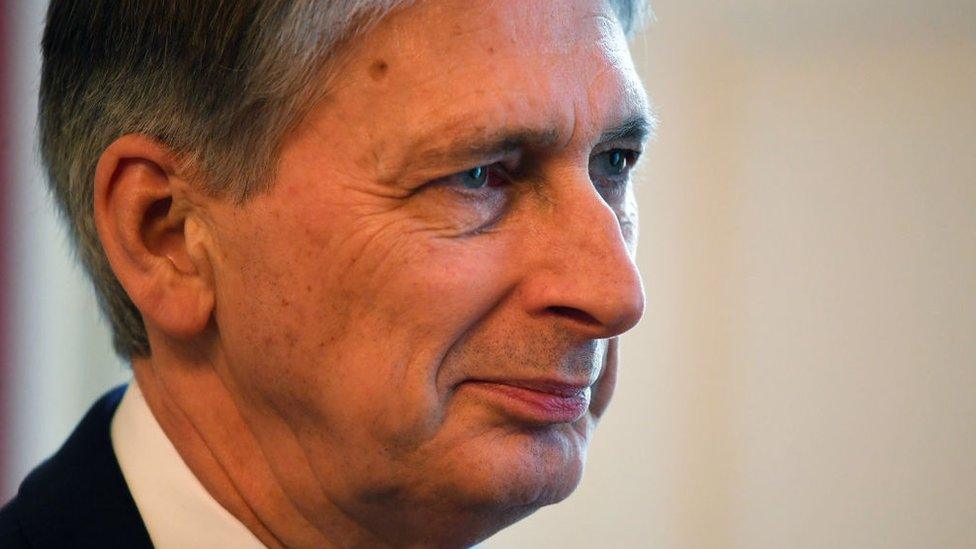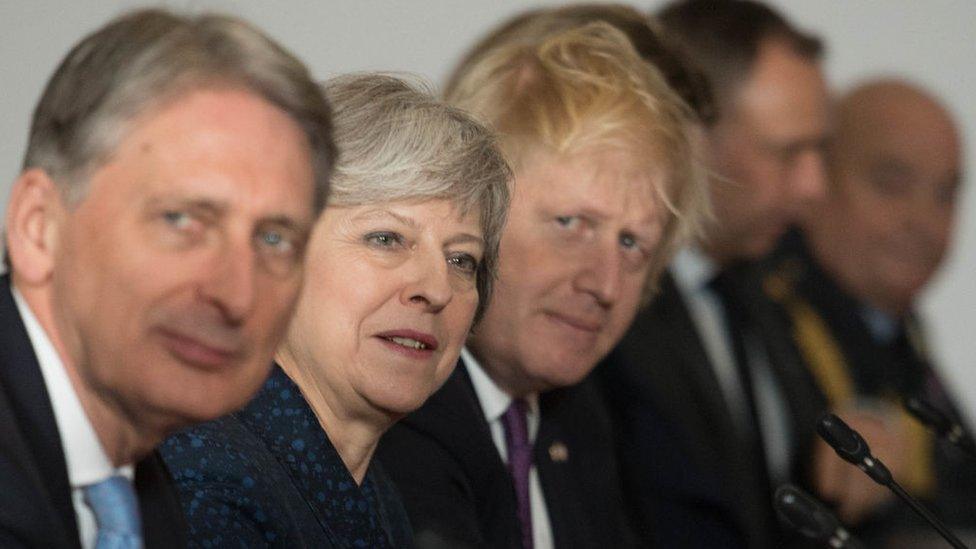Hammond joins Brexit roadshow
- Published
- comments

Businesses were left scratching their heads when it was reported at the weekend that Theresa May would be leading cabinet colleagues in a series of "road to Brexit" speeches over the next fortnight.
Prominent by their absence - or so it seemed - were the chancellor and the business secretary.
Whereas firm supporters of the Brexit option ahead of the referendum - the foreign Secretary, Boris Johnson, the international trade secretary, Liam Fox, and Brexit minister, David Davis - were all said to be part of the roll-out, there was no mention of either Philip Hammond or Greg Clark.
Deliberately "sidelined" it was reported.
Frozen out was another description.
The inference was clear.

Mr Hammond and Mr Clark both supported remaining in the European Union before the referendum and since then have argued for retaining close trade ties with the EU.
This plan to put meat on the bones of the government's EU plans would have a very Brexity flavour.
But I am told that the "frozen out" narrative has either changed rapidly or was not quite right in the first place.
Road trip
Senior Whitehall sources tell me that both the chancellor and the business secretary will indeed be making speeches on Brexit over the next fortnight.
Mr Hammond is likely to make his intervention during a trip to European capitals which the chancellor is starting this week.
He is scheduled to visit Oslo, Stockholm, Madrid and Lisbon, as well as The Hague in the Netherlands.
There were attempts at engineering a joint event with Mr Davis but diary clashes made that impossible.
Mr Hammond will be speaking about financial services.
Mr Clark will talk about the need for closely allied "customs arrangements" to help business trade as freely as possible across our biggest export market - the remaining EU27 states.
The chancellor will argue that a free trade agreement with the EU including financial services is essential for the whole of Europe.
Britain, as the governor of the Bank of England has argued, is banker to the EU as well as to the UK and much of the rest of the world.
Getting warmer
Despite tough noises coming out of the European Commission in Brussels about the chances of such a deal, my government sources are convinced leading politicians from EU member states are far more positive.
Mr Hammond has already been pushing his case via meetings with the Polish and Finnish finance ministers.
Where it is said he received a warmer response than that emanating from the EC.
Now, some of this might be wishful thinking by the UK government.
When I interviewed the Polish Prime Minister at the World Economic Forum in Davos last month, he said, yes, Poland wanted a good deal for the UK, but Britain would be expected to pay for special access to the EU's markets.
France has also made no secret of its desire to see as much financial services activity as possible relocate to Paris from London.
Many large businesses that supported remaining in the EU and now support the softest of soft Brexits will be relieved to hear that Mr Hammond and Mr Clark are part of Theresa May's roadshow plans.
Whether that will lead to a coherent message when those plans are revealed is another matter.